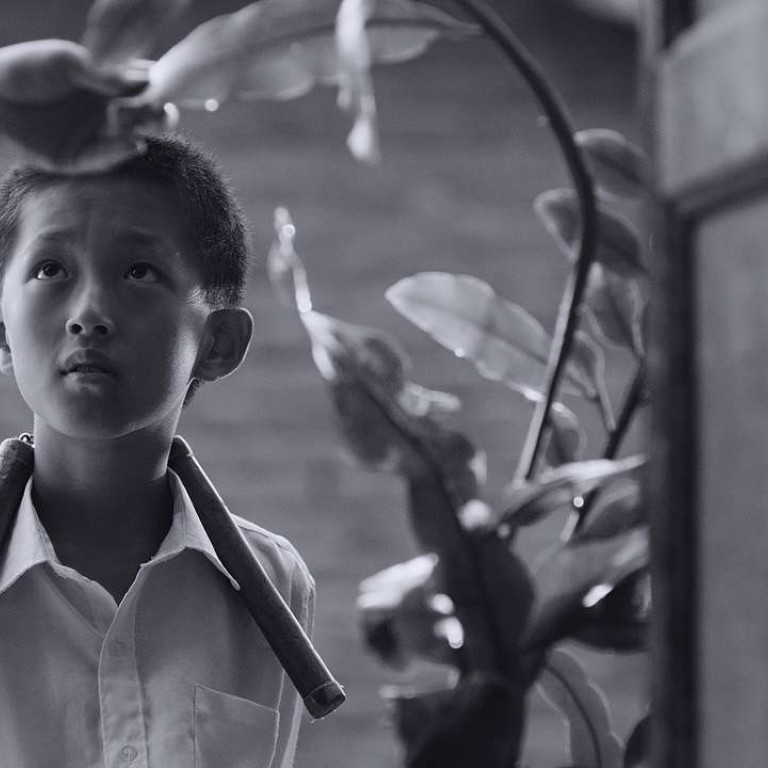
Chinese filmmakers feel the political heat at Rotterdam film festival
Zhang Dalei and Wen Hai found themselves peppered with questions about the political impact of their work
Imagine being a young director bringing your first feature to one of the world’s leading international film festivals only to find yourself fielding probing questions about the state of your country. A daunting ordeal, indeed, and one that Chinese filmmaker Zhang Dalei went through on a recent night in Rotterdam, in the Netherlands, after a screening of his debut The Summer Is Gone.
Recounting a schoolboy’s rite of passage over a sweltering summer in the early 1990s, Zhang’s film is a mild-mannered, sepia-tinged family drama based on the director’s own recollections of his childhood in Hohhot, the capital of Inner Mongolia.
While there’s a certain social subtext bubbling beneath the narrative – the young protagonist’s growing pains run parallel to his father’s losing his job at the recently privatised state film studio – The Summer Is Gone is hardly a hard-hitting political drama.
Although Zhang’s film doesn’t set out to ask many questions about China, the Rotterdam audience were demanding answers anyway. How is the country’s one-child policy relevant to the film? How would Zhang compare family structures in the 90s with those of the here and now? What does the boy’s nunchaku symbolise?

A few streets away, at another cinema in Rotterdam, Wen Hai (real name Huang Wenhai) was caught in the same conundrum. Having just presented his latest documentary, We the Workers, the filmmaker was asked how manual labourers are faring in China. The director was ready to respond to most of the queries – about the surprises and risks of filming such a sensitive subject in China, the growth of civil rights organisations across the country – but he finally snapped when a member of the audience asked him whether he thinks about his film’s political impact.
“I’m just someone who makes films,” he said. “I don’t really have that many solid answers to some of these problems. What I am concerned about is how people change. I don’t have that many suggestions about politics on a wider scale.”
It’s common for filmmakers to be quizzed about their subjects and homelands by curious foreign viewers at international festivals. For Chinese filmmakers, however, this might be as much a burden as it is an honour. Unwittingly and sometimes unwillingly, they find themselves becoming the vehicle through which people try to understand China – or, at least, an image of China different from that offered by the country’s propaganda machine or in the international mass media.
Even more than the warped representations of the country found in Hollywood productions, Chinese films doing the festival rounds have always shaped the international imagination – or at least that of the opinion-leading intelligentsia – of the “real” China.
The so-called “fifth-generation” filmmakers – a group that included Chen Kaige, Zhang Yimou and Tian Zhuangzhuang – mesmerised festival audiences worldwide in the 80s, when their highly charged, grassroots-driven works diverged from socialist realist traditions.

In the 90s, it was the turn of Jia Zhangke, Wang Xiaoshuai and Zhang Yuan to allow foreign cinephiles a glimpse of China’s contemporary, alienated youth – a social stratum at odds with the country’s official narrative. Banned from public release in China, their independently produced, low-budget titles – Jia’s Xiao Wu (1997), Wang’s The Days (1993) and Zhang’s Beijing Bastards (1993) – were enthusiastically received at festivals abroad, and were seen as providing unflinching, authentic representations of modern, urban Chinese lives.
With the Beijing authorities increasing their grip on culture and media, and the country’s soaring mainstream film industry’s heightened focus on producing fantastical blockbusters, artistically progressive and socially topical films have remained favourites for international festival programmers.
While all of these films deserved their berths for their artistic and technical qualities, they will also be taken as powerful documents and social allegories of Chinese society. With foreign audiences unable to secure a more pluralistic representation of the country from official channels, they will continue to seek answers from artists and filmmakers.
Mainland Chinese filmmakers should brace for more politically charged questions of a sort they might once have considered as beyond their scope.

